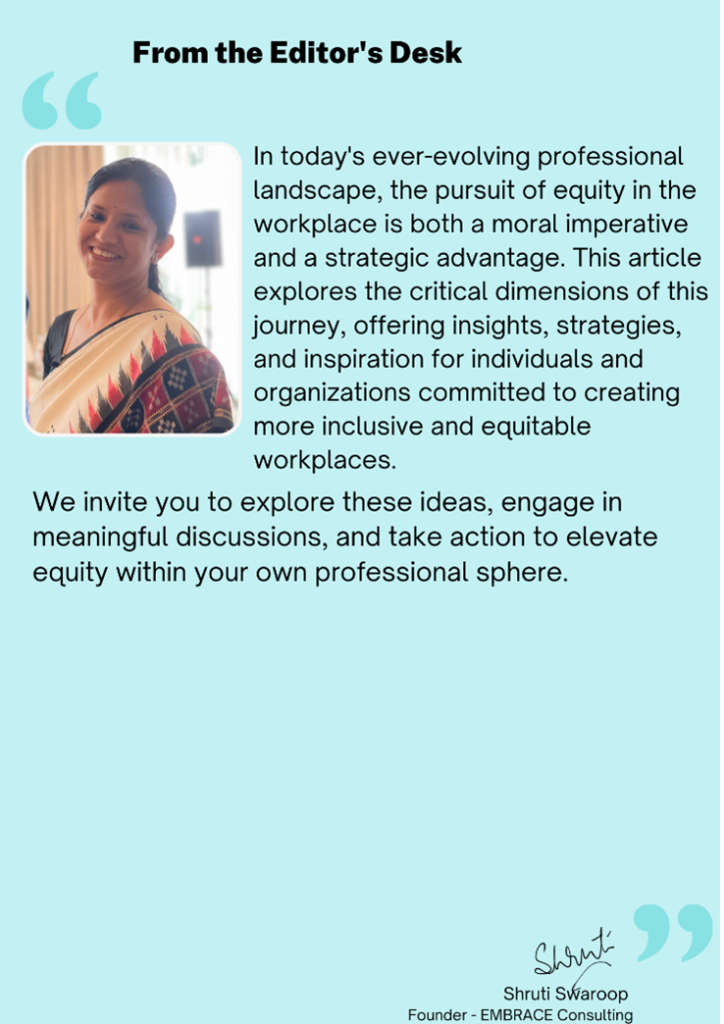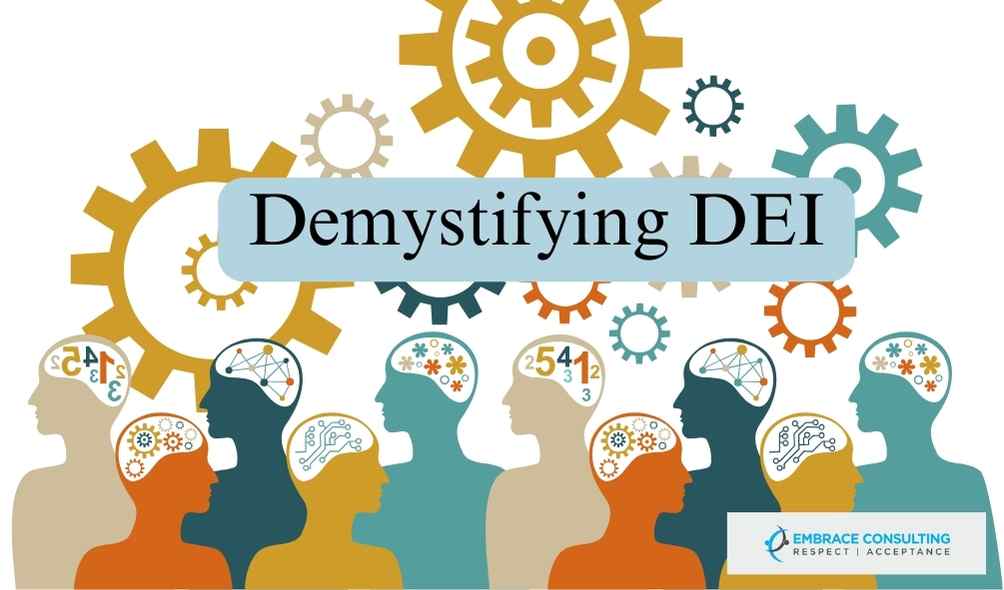
In today’s rapidly evolving world, creating a diverse, equitable, and inclusive workplace is no longer just a nice-to-have; it has become a necessity. The workplace plays a significant role in shaping individuals’ lives, and it is crucial to create an environment where everyone feels valued and heard. In this blog post, we will explore the concept of equity in the workplace and discuss how it relates to Diversity, Equity, and Inclusion (DEI) initiatives.
Understanding Equity in the Workplace
Equity is often confused with equality, but they have distinct meanings. Equality focuses on treating everyone the same, whereas equity acknowledges that individuals have different needs and privileges. In the workplace, equity means providing opportunities, resources, and support tailored to each person’s unique circumstances to ensure fairness and inclusion for all.
The Importance of Equity
Elevating equity in the workplace has numerous benefits, both for employees and the organization as a whole. When equity is prioritized, it fosters a sense of belonging and psychological safety, allowing employees to bring their authentic selves to work. This, in turn, leads to increased employee satisfaction, engagement, and productivity. Moreover, diverse perspectives and experiences brought by an equitable workplace can drive innovation and better decision-making.
Relating Equity to DEI
Equity is an essential pillar of DEI, a framework aimed at creating a more inclusive and equitable society. DEI initiatives address not only the representation of diverse individuals in the workplace but also the systems and practices that perpetuate inequality. By incorporating equity into the broader DEI framework, organizations can tackle systemic barriers and create a level playing field for all employees.
Building Diversity and Inclusion
To truly elevate equity in the workplace, it is essential to ensure that diversity and inclusion are also prioritized. Diversity refers to the presence of individuals from different backgrounds, while inclusion involves creating an environment where diverse voices are heard, respected, and valued. Equity acts as the bridge that connects diversity and inclusion, ensuring that opportunities are accessible and biases are addressed.
Strategies for Elevating Equity at the Workplace
1. Diversity and Inclusion Training
Providing comprehensive diversity and inclusion training to employees is a fundamental strategy for achieving equity. This training should educate individuals on the importance of understanding and respecting different perspectives, backgrounds, and experiences. It should also include strategies for addressing unconscious bias and promoting inclusive behaviors.
2. Equal Opportunity Hiring Practices
To promote equity, organizations must ensure that their hiring practices are fair and unbiased. Implementing blind hiring techniques by removing identifying information from resumes reduces the risk of unconscious bias in the selection process. Additionally, promoting diverse candidate pools and conducting structured interviews can help eliminate discriminatory practices.
3. Pay Equity Assessments
Regular pay equity assessments are crucial for identifying and rectifying any disparities in compensation. Organizations should conduct thorough analyses to ensure that employees’ salaries are based on job responsibilities and skills, rather than on gender, race, or any other protected characteristics. Transparent salary structures and periodic reviews can further promote pay equity.
4. Mentorship and Sponsorship Programs
Establishing mentorship and sponsorship programs can provide underrepresented employees with valuable guidance and support. Mentors can offer advice, share experiences, and help navigate career advancement opportunities. Sponsors, on the other hand, actively advocate for their mentees’ career progression and help create new opportunities.
5. Employee Resource Groups
Employee resource groups (ERGs) create a platform for employees with similar backgrounds to connect, share experiences, and support one another. ERGs provide a sense of community and enable individuals to contribute to organizational initiatives, ensuring their voices are heard and their unique perspectives are valued.
6. Regular Feedback and Recognition
Frequent and constructive feedback is essential for nurturing an equitable workplace. Managers should provide feedback on performance, growth opportunities, and areas for development. Additionally, recognizing employee achievements and contributions publicly helps promote a culture of inclusion and fairness.
In conclusion, elevating equity in the workplace is a crucial step towards building a truly inclusive and diverse organization. By prioritizing equity, organizations can go beyond treating everyone the same and ensure that everyone has an equitable chance to thrive. Integrating equity into DEI initiatives is a strategic approach that can lead to better employee experiences, increased productivity, and ultimately, a more just and equitable society. Let us all commit to creating work environments where equity is not just an aspiration but a reality for everyone involved.
______________________________________________________________________________________________________________________________________
It’s time to #EmbraceEquity at the workplace
ETHRSEA | Mar 7, 2023
Embracing equity in the workplace could simply mean creating an environment where all employees are respected, valued and have equal opportunities regardless if their gender, race, ethnicity, religion, age, sexual orientation or any other protected characteristic, especially women. It involves creating policies and practices that promote diversity, inclusion, and equity and that are free of discrimination and bias. This could include offering equitable benefits and wages, providing flexible working conditions, and providing training and development opportunities to all employees. Additionally, it could also involve eliminating any barriers that prevent employees from reaching their full potential, more so women, such as unconscious bias in the recruitment and promotion processes. Ultimately, embracing equity in the workplace means creating an environment where everyone can thrive and reach their highest potential.
Read more on: https://hrsea.economictimes.indiatimes.com/news/industry/its-time-to-embraceequity-at-the-workplace/98454093












